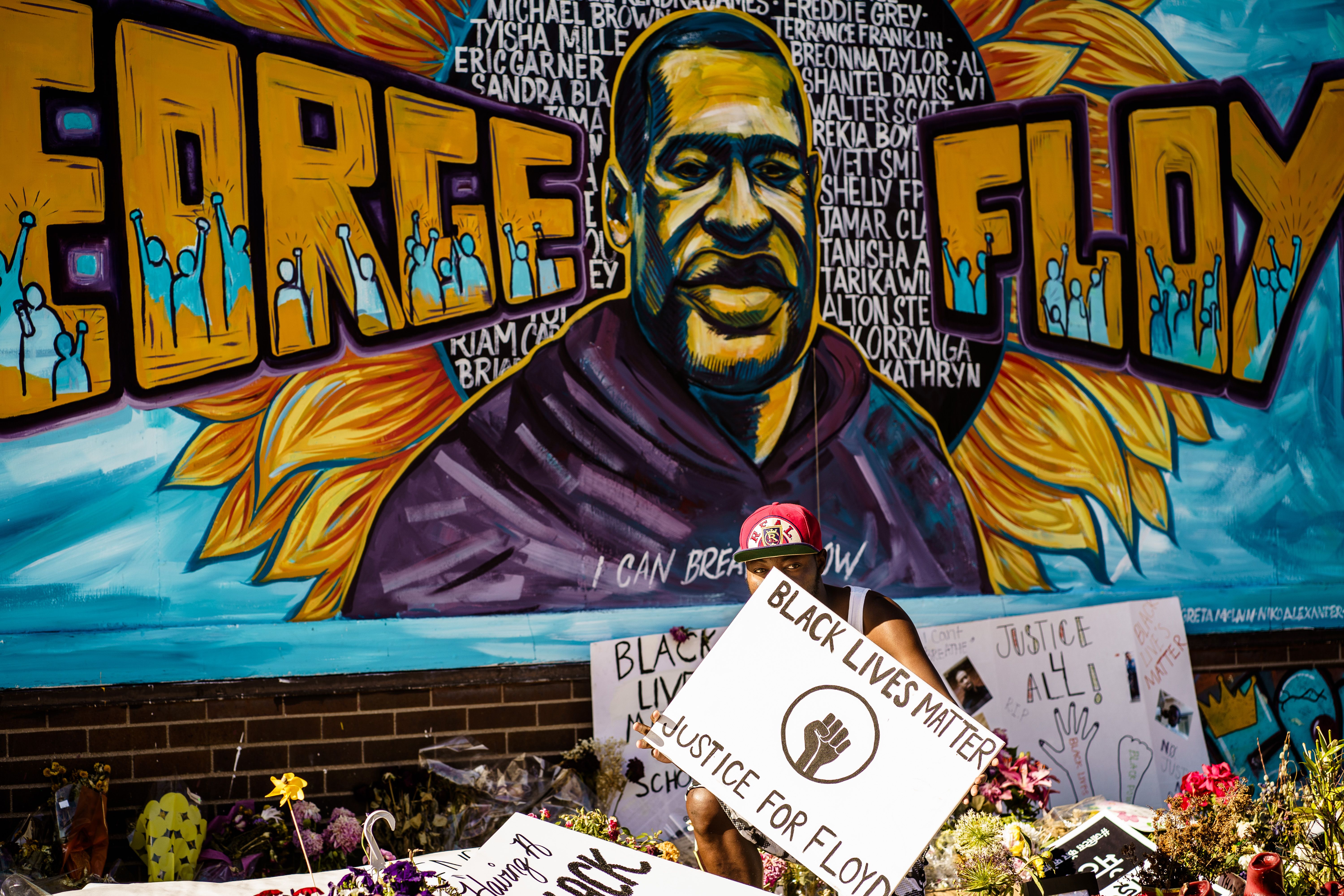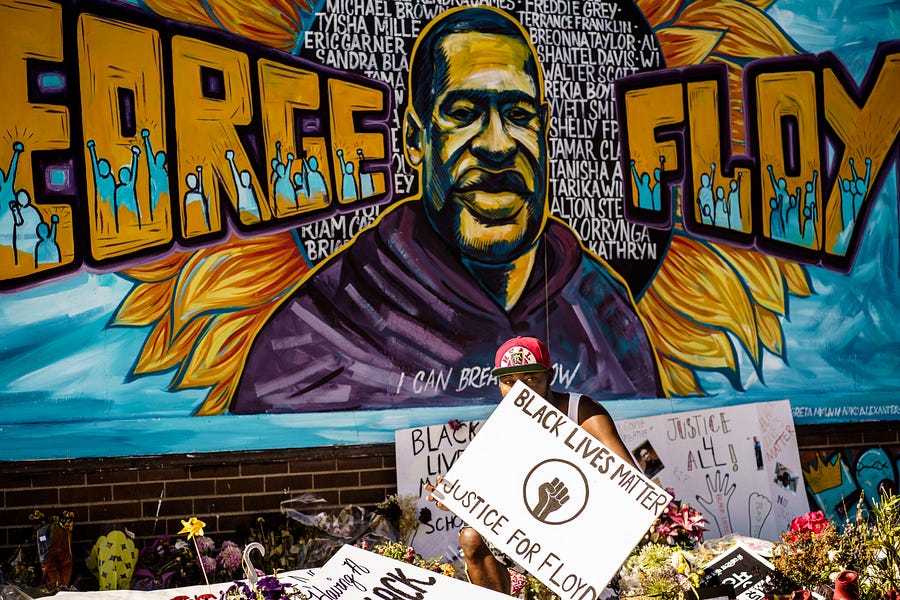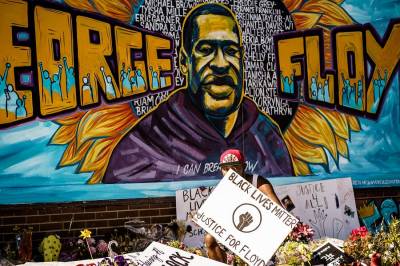
Let’s begin with a story that goes all the way back to the beginning of humanity’s historical record. Genesis Chapter 4, the chapter immediately following the account of the Fall of Man, begins with the story of Cain and Abel. Cain was angry and jealous that the Lord had regard for Abel and his offering of the “first-born of his flock,” and not for Cain’s offering of “the fruit of the ground.” In a fit of jealousy and rage, Cain killed his brother.
Most Jews and Christians are familiar with the account that follows. God asks Cain, “Where is Abel your brother?” Cain responds, “I do not know; am I my brother’s keeper?” These words from Cain are legendary. They’ve spawned countless sermons, books, and songs. God’s response is less-quoted, but it’s vital. “What have you done? The voice of your brother’s blood is crying to me from the ground.”
This is the cry for justice. It’s existential. It’s spiritual. And if there is anything that we should learn from scripture, it’s that the cry for justice demands a response.
I’m not talking about the public policy and equity-grounded debates around “social justice” or the “common good”—the left and right’s respective ways of speaking about how we should shape society at a macro level to provide for peace, prosperity, and human flourishing. Those conversations are necessary and vital, but today I’m talking about something far more basic: the simple justice that’s necessary when one man wrongs another.
Simple justice rests on the notion that when a man is harmed, he (or his heirs) should receive redress. If the harm is grave enough, justice also demands punishment. Biblically, this is a fundamental function of government. Paul, writing in Romans, puts this responsibility bluntly. “For rulers are not a terror to good conduct, but to bad.” Paul continues, “If you do wrong, be afraid, for he does not bear the sword in vain. For he is the servant of God, an avenger who carries out God's wrath on the wrongdoer.”
For this simple justice to be biblical, it must be impartial. From the beginning of scripture, the principle was clear: “You shall not be partial in judgment. You shall hear the small and the great alike.”
Without diving into all the complexities of the rich theology of biblical justice in all its fullness (for a primer on this contentious subject, I strongly recommend this extended piece by Tim Keller), we can articulate three truths of simple, individual justice. First, a grave wrong creates a moral and spiritual cry for redress. Second, it is the role of government to provide that redress. And third, the government must be impartial, treating “great and small” alike.
All too many Americans are completely unaware of the extent to which the present structures and habits of American law fail to meet those basic obligations, especially when injustice is visited upon the citizen by the state. Again, I’m not talking about “social justice” here. I’m talking about the basic ability of the state to punish the guilty and compensate the innocent. I’m talking about the way in which our culture and the state have together explicitly privileged the great over the small, the powerful over the powerless.
This brings us to George Floyd. The Floyd case resulted in two events that are all too rare in American law. In March, Floyd’s family received a very substantial payment from Minneapolis to settle its civil claims against the city. Then, days ago, a jury convicted Derek Chauvin of murder after he kneeled on Floyd’s neck until he died.
Any person who thought the outcome of the trial was a foregone conclusion simply hasn’t paid attention to police murder trials in the United States of America. As NPR reports, since 2005, “only five non-federal law enforcement officers were convicted of murder in an on-duty shooting and not had the conviction later overturned.”
You can grant that the vast majority of police shootings are legally justified and still be staggered by that statistic, especially given that there are approximately 1,000 fatal police shootings in any given year. The statistic raises a question—why? Are police so effective that the statistic accurately reflects the true number of illegal shootings? Or is something else at work, something that vitiates biblical justice and creates partiality for the great over the small?
In 2017, shortly after a Minnesota jury acquitted the police officer who shot and killed Philando Castile at a traffic stop, I wrote about the unwritten law that helps bad cops go free. That rule is simple: “When an officer is afraid, he’s permitted to shoot. Juries tend to believe that proof of fear equals proof of innocence.”
In other words, America is too often in the grips of favoritism that defeats individual justice. While the letter of the law is typically fair, usually permitting police officers to open fire only when a “reasonable person of ordinary firmness and courage” would believe lethal force is necessary to protect from death or serious bodily injury, the longstanding jury practice is to favor a police officer’s judgment, to give him the benefit of the doubt—especially when he testifies he’s afraid.
In 2015, for example, a South Carolina jury couldn’t reach a verdict even when video evidence showed a police officer shooting an unarmed black man named Walter Scott in the back as he slowly ran away from a confrontation with a cop. What was the officer’s testimony? “In my mind was fear. I was scared. With everything leading up to this ... it was total fear that Mr. Scott was coming toward me.”
Yet Scott wasn’t coming toward the officer. He was retreating. Oh, and the video also showed the officer planting an object by Scott’s body as he lay on the ground, bleeding and dying. Yet still the jury hung. (The officer later pled guilty to federal civil rights charges.)
Consider the acquittal of the officer who killed Philando Castile. You can listen to the heartbreaking audio of the fatal traffic stop. Castile calmly informs the officer that he’s lawfully carrying a firearm. He complies with every one of the officer’s requests. Yet the officer suddenly and obviously panics, opens fire, and kills Castile.
Why was the officer so suddenly afraid? After all, at no point did Castile reach for his weapon. But what made the officer open fire into a car and shoot Castile in front of his girlfriend and a young child? The smell of marijuana smoke panicked him. I’m not making this up. Here’s a quote from his statement:
I thought I was gonna die and I thought if he’s, if has the, the guts and the audacity to smoke marijuana in front of a five-year-old girl and risk her lungs and risk her life by giving her secondhand smoke and the front-seat passenger doing the same thing then what, what care does he give about me?
I could go on. I’m still haunted by the video of the shooting of Daniel Shaver, when a police officer shot a man who was crying, crawling, and begging for his life. Why did the officer shoot? Because he panicked when Shaver’s pants started to fall down, and he reached to pull them up. A jury acquitted the officer of all charges.
The common thread is favoritism. It’s a favoritism that protects the armed officer of the state more than the slain citizen in the street. When you’ve seen these videos and when you’ve studied these cases, you start to learn why there were those who literally wept with relief when the Minnesota jury convicted Derek Chauvin.
But American justice doesn’t just suffer from an informal legal tradition of jury favoritism. There is also a formal, legal favoritism that is embedded in the law, in a doctrine called qualified immunity.
The story of qualified immunity is simple and tragic. A law meant to protect black Americans has been perverted into a doctrine that has disproportionately harmed black Americans (along with Americans of all races) for decades.
Here’s what happened. After a wave of violence directed at freed slaves in the South, the Reconstruction-era Congress enacted a series of “Enforcement Acts” designed to, among other things, defeat attempts at voter suppression and enforce the provisions of the Fourteenth Amendment, which guaranteed equal protection under the law.
The Second Enforcement Act of 1871 (better known as the “Ku Klux Klan Act”) granted citizens the right to compensation when state officials violate their civil rights. It’s an explicit statutory command that exists to this day. It is and was designed to empower citizens to directly confront the state.
Since 1871, however, courts have eroded the Klan Act’s vital protections. It is now extraordinarily difficult to obtain compensation from state officials, even in the face of draconian state misconduct. The court-created qualified immunity doctrine functionally modifies the statute and requires plaintiffs to prove more than a violation of their civil rights. They have to prove that the facts of their case closely match those of a different, previous case in a controlling jurisdiction. Only then will courts deem police officers on sufficient notice that their actions are unlawful.
Fifth Circuit judge Don Willett recently wrote that qualified immunity now “smacks of unqualified impunity.” Our courts have taken a law designed to protect citizens from the state and now use it to protect the state from its citizens.
The injustice that can result is simply staggering. I’ve written about many of the cases before, but I’ll share one heartbreaking example from a piece I wrote at National Review:
In the early morning hours of July 15, 2012, a young man named Andrew Scott was up late, home with his girlfriend. They were playing video games when they heard a loud pounding on the door. Alarmed, Scott grabbed a pistol and opened the door. He saw a man crouching outside in the darkness. Scott retreated, gun still at his side, pointing down to the ground.
Almost instantly, the crouching figure fired his own weapon. The encounter was over in two seconds. Scott lay on the ground, dead. The man who fired? He was a police officer. He was at the wrong house. Andrew Scott was a completely innocent man who had done nothing more than exercise his constitutional right to keep and bear arms in defense of his own home.
As for the officer? Well, not only was he at the wrong house, but he had no search warrant even for the correct house, he had not turned on his emergency lights, and he did not identify himself as police when he pounded on the door.
The officer was never prosecuted. The state ruled that the shooting was “justified”—in part because it said the police had no obligation to identify themselves. Then, when Scott’s estate sued the officer for money damages, the court threw out the lawsuit. A panel from the Eleventh Circuit Court of Appeals affirmed the dismissal. Then [in 2017] the entire court rejected en banc review.
What do I hear in my head when I read that story? An ancient sentence. “The voice of your brother's blood is crying to me from the ground.”
America is mired in arguments over complex racial controversies. Achieving true biblical justice is extraordinarily difficult. How does a nation unwind all the effects of 345 years of legally-mandated, violently-enforced racial discrimination? The task is huge. And not every idea or effort at achieving racial reconciliation is worthy or constructive.
But simple, individual justice is a necessary component of biblical justice. It’s a necessary component of social justice and the common good. I write this essay not to provide a roadmap or blueprint for all the ways in which our nation can shed the legacy of its worst sins, but instead to state that, yes, it is still easy to identify ideas and doctrines that continue to oppress our friends and neighbors, and those ideas and doctrines must be evaluated in the light of biblical commands.
We should hope and pray that last week’s verdict and last month’s settlement mark a turning of the tide in American law. We owe good police our gratitude. We owe them the resources and training they need to do their job well. Our nation must not, however, privilege its public servants over its population, and when Christians ponder American law, they must remember to never, ever prefer the great over the small.
One last thing …
My oldest daughter introduced me to this hymn. It has meant a great deal to her as she cares for her miracle baby, our beautiful granddaughter Lila. It’s a marvelous song of hope and truth:







Please note that we at The Dispatch hold ourselves, our work, and our commenters to a higher standard than other places on the internet. We welcome comments that foster genuine debate or discussion—including comments critical of us or our work—but responses that include ad hominem attacks on fellow Dispatch members or are intended to stoke fear and anger may be moderated.
With your membership, you only have the ability to comment on The Morning Dispatch articles. Consider upgrading to join the conversation everywhere.